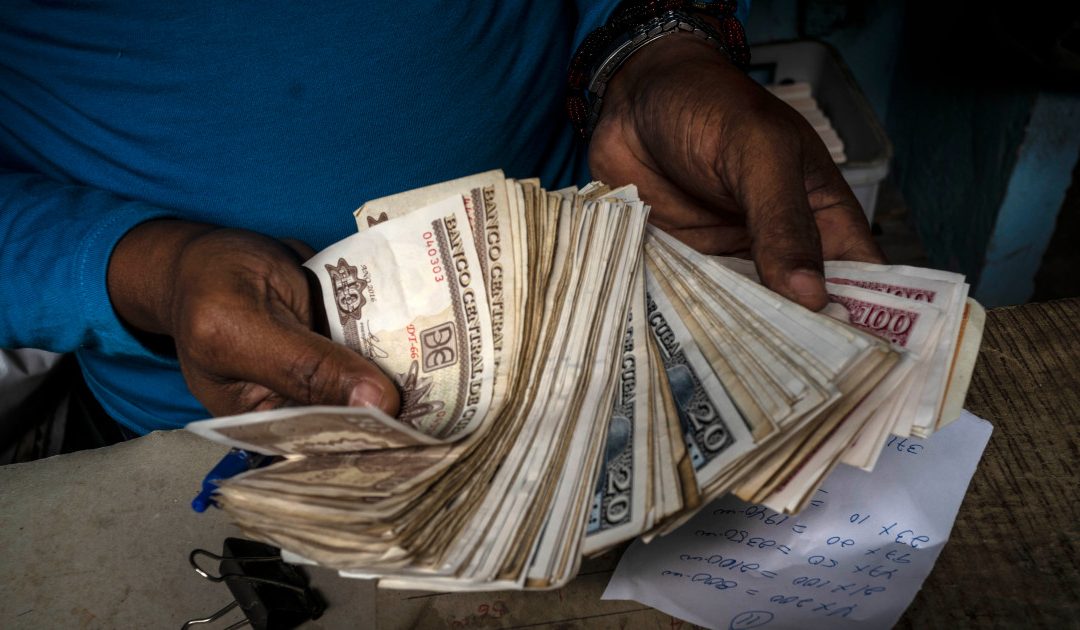The recent Currency Readjustment Task was undertaken because Raúl Castro got frightened by the possibility of Cuban private entrepreneurs becoming economically and politically independent from the regime and competing with GAESA.
Raúl Castro deleted the “social contract” –imposed for more than sixty years– between the communist state and the population in these terms: “Your freedoms and rights will be taken away but you will have employment, public health care and education.” Since then, he has referred to that arrangement in pejorative terms as the “fatherly state” and announced that it had to be liquidated (but without recognizing rights or freedoms). He then suppressed “subsidies” and “gratuities” and left citizens to their fate, without sufficient social benefits to survive. With the advent of the so-called “Currency Readjustment” the logic of Every Man for Himself! was brutally installed. All of this has occurred in the midst of a devastating economic crisis and a deadly pandemic. And what has been the communist party’s response to citizens’ complaints? Very simple: Blame it on Trump and the United States.

The result of this paradoxical shock therapy is disastrous. But the regime, on the other hand, speaks of its “success”.
It is false that the “Currency Readjustment” is generating more jobs
The result of this paradoxical shock therapy is disastrous. But the regime, on the other hand, speaks of its “success”. President Miguel Díaz-Canel and the most senior official in charge of implementing this measure, Marino Murillo, say that more than 100,000 Cubans who had no employment have joined the work force since subsidies and gratuities were abolished.
False. Independent journalists report that such a figure cannot be possible because of every two who go looking for a job, one returns home without success. Either because there are not enough gigs available, or because they pay very low wages. Precisely because of this, Minister of Economy Alejandro Gil has now said that the 2021 forecast for available employment is 20,000 jobs. Of course, they do not explain at length the reason for this correction. They know that no one believes their numbers and promises to begin with, so why rectify what no one believed in the first place?
Without “grafting” at state warehouses no one can survive in Cuba
According to official figures, on the island there are 2.5 million people of working age who do not work and another 600,000 workers who lost their jobs due to the economic crisis and the pandemic.
You don’t need to be a rocket scientist to conclude that Cuba can create three million new jobs only by resorting to free enterprise. By the way, most of these new state employees are the self-employed who had to close their businesses against their will because they were made unprofitable by the Currency Readjustment. It was a recipe for chaos: low caps on the prices of products to be sold and very high prices for the inputs needed to produce them, in addition to exorbitant fines, confiscations and imprisonment for whatever reasons. Far from lifting the blockade on non-state production, it has been reinforced.
Even so, it is obvious that Cubans now prefer to work on their own and not depend on a miserable state salary in jobs where, besides, they are used politically by the official trade union as if they were government robots. Cuban economists estimate that the informal sector of the economy generates 35% of the Gross Domestic Product. The state does not satisfy the needs of the population, which has to resort to the underground economy, a black market basically supplied by theft in state warehouses and factories. In the official language, always covering up for any issue, this reality is known as “diversion of state-owned resources.”
When Lenin founded the first communist state in the world, he imposed the motto “He who does not work neither shall he eat.” In communist Cuba until very recently, if workers did not receive remittances, or misappropriated state products in factories and warehouses, neither did they eat. Today it is difficult to survive even if they do.
Both the black market and the official stores are now running out of supplies and prices have accordingly taken an inflationary turn. Likewise, in state warehouses there are fewer and fewer products that can be grafted.
In April 2020, the Federation of Rural Women (FLAMUR) and the League of Independent Farmers warned of the proximity of a famine if productive forces in agriculture were not released. The government did nothing and the famine is already at the gates of urban areas.

